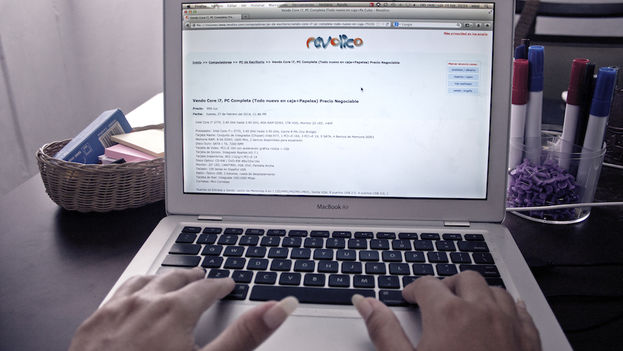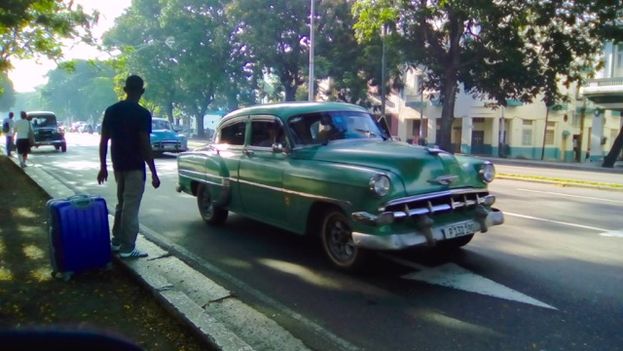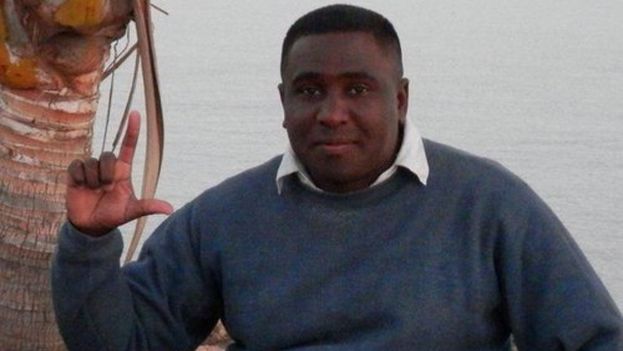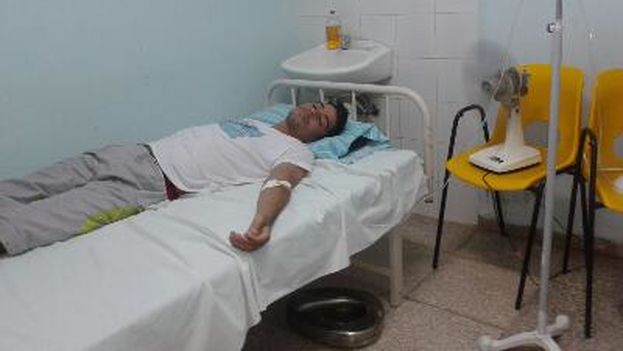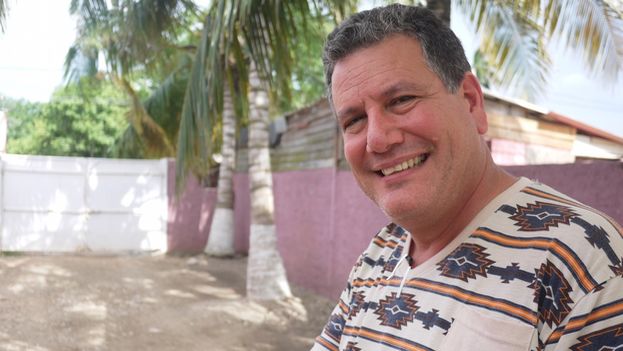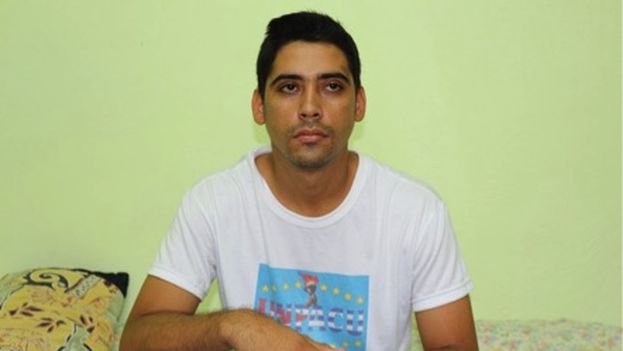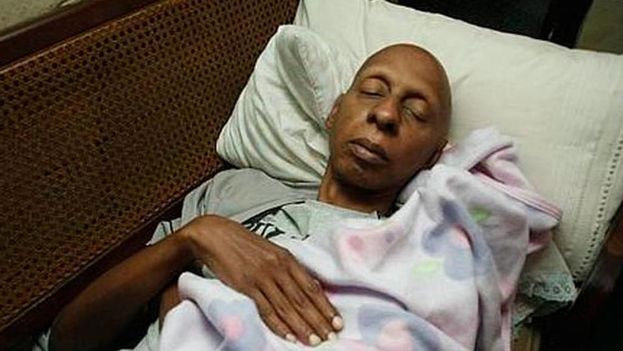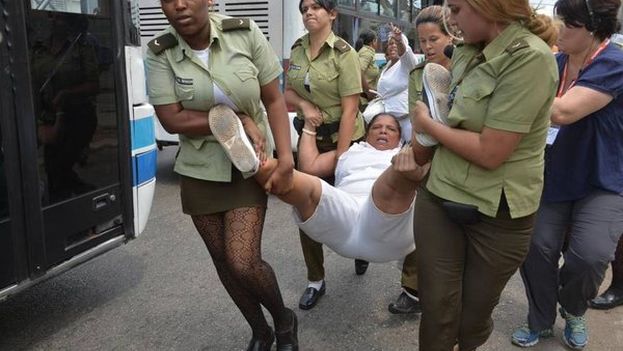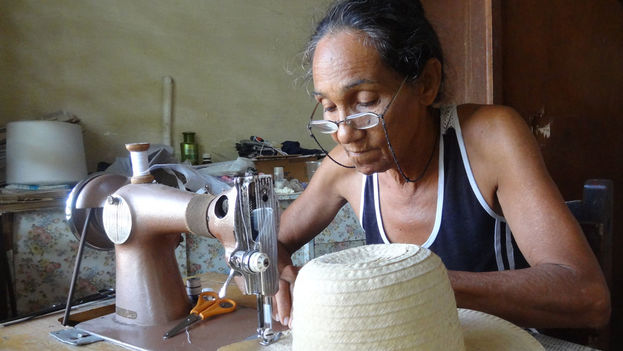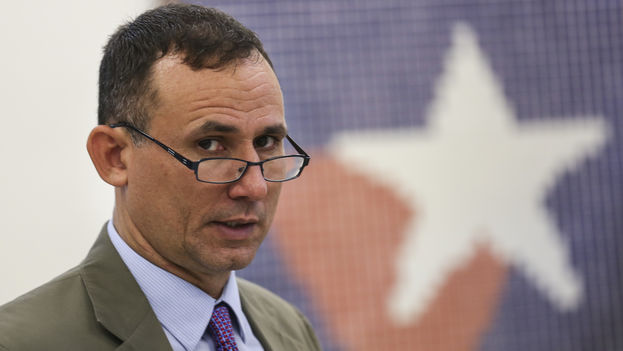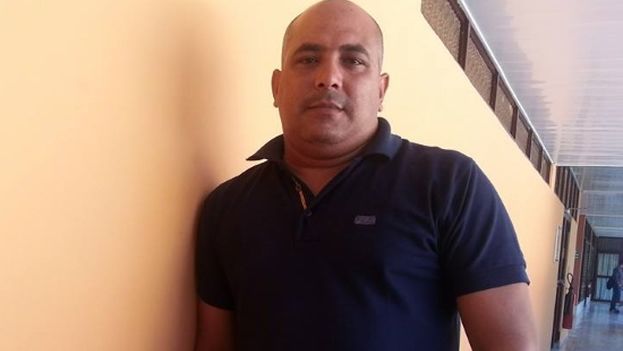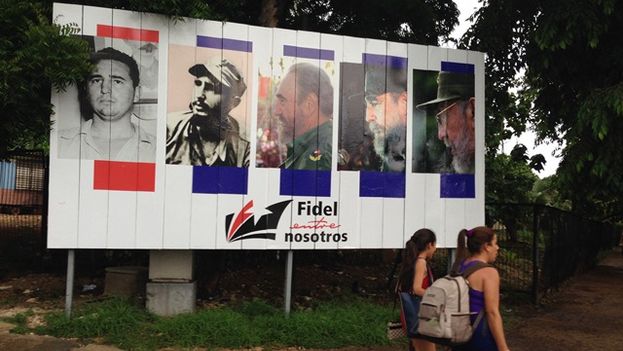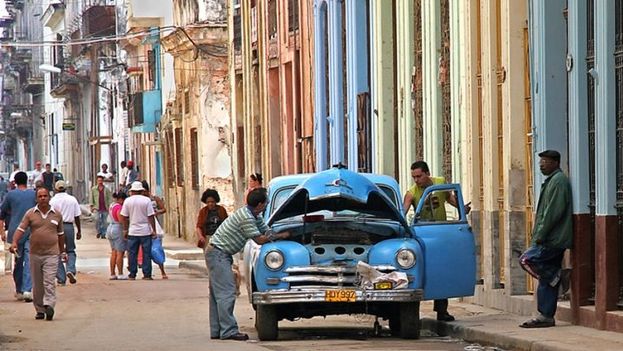While the confrontation between an opposition leader living on the island, and a regime defender – but not a “representative” – of the Cuban dictatorship was original, the truth is there are antecedents where supporters and opponents of the Castro regime have faced off before the cameras. continue reading
Almost 20 years ago, on 23 August 1996, Maria Elvira herself participated, along with two of her colleagues, in moderating an unusual debate between a representative of the opposition in exile and a senior official of Fidel Castro’s government.
The memorable and passionate debate between Jorge Mas Canosa, then chairman of the Cuban American National Foundation, and Ricardo Alarcon, then president of the National Assembly of Cuba, was recorded simultaneously from both sides of the Florida Straits – Mas Canosa in Miami, Alarcon in Havana – and released by the CBS television in more than 20 countries.
Lasting almost an hour, that discussion made clear the superiority of an opponent who expressed himself with total freedom, in contrast to the obedient servant of a totalitarian ideology, tied to slogans and cliches, who was literally run over by his rival.
An important moment of that program came when Mas Canosa exhibited the dehumanizing nature of the assumptions on which the Castro regime stands, reading Alarcon the text, printed on the back of a Cuban internationalist’s card, with a phrase from Che Guevara taken from his speech during the Tricontinental Conference: “… the revolutionary needs to know how to become a cold killing machine…” There is nothing to discuss.
Saving the differences, the most recent debate between Jose Daniel Ferrer and Edmundo Garcia repeats some elements of that one from two decades ago, namely, the passionate defense of diametrically opposing positions and the adherence of the Castro regime supporter to the same scheme of slogans and repetition of the discourse dictated by the Cuban totalitarian power.
However, a great many of the colleagues and friends who from Cuba and from emigration have shared with me their views on this program, agree that Ferrer fell below expectations, and could and should have been more precise and direct in his responses to the hackneyed postulates and attacks of Mr. Garcia.
They feel, moreover, that the confrontation demonstrated, on the one hand, the ability developed by the Castro regime’s servants in the media to evade positions about the Cuban reality and the continuing violations of the rights under the dictatorial Castro regime, clouding the atmosphere and attacking the adversary with the usual disqualifications that are repeated ad nauseam in the official media of the island; and secondly, the lack of training of the leaders of the opposition in controlling the debate and taking advantage of the many weaknesses of the pro-Castro discourse, even when it is presented by a minor extra lacking any credentials, as is the case with Edmundo Garcia.
Personally, I agree with most of these opinions, but I know, from the times I have been able talk with José Daniel Ferrer, that his ideas are better informed and his discourse is better articulated than that he offered us during his presentation in Miami.
We have to recognize that, like it or not, Mr. Edmundo Garcia, an emigré who defends the olive-green caste from the comfort of a Florida city – which however, he considers a nest of terrorists – dominates the job of disinformation, and misinforms, distorts and disguises truths before the cameras with astonishing tranquility. José Daniel, on the other hand, was visibly uncomfortable. His natural setting is the tribunal of the streets, the passionate call, the colloquial discourse among Cubans; not the media. A limitation that must be overcome.
The use of inexact or poorly enunciated terms on the part of the moderator was not helpful, nor was the poor selection of the video that should have been shown (but wasn’t) of the beatings the political police deal out to opponents. The well-trained and opportunistic Edmundo knew how to use these failures to his favor.
These and other miscues explain how Garcia handled himself and dared to say without blinking and without a blush on his cheeks, that the painful events of the 13 de Marzo tugboat massacre, when a group of innocent Cubans were killed by Castro’s military forces, were the direct responsibility of the victims.
He also downplayed the scandalous hiring of foreign labor on the island, when there are thousands of unemployed Cubans, a fact that Ferrer pointed out to him and that the ineffable Edmundo Garcia considered something “normal.” I can understand that Ferrer could barely contain his outrage in the face of the rampant cynicism of this man, and to a certain extent this explains to me Ferrer’s distraction while responding in the debate.
Another unnecessary altercation between the two was related to the number of activists and members belonging to the Patriotic Union of Cuba (UNPACU), recognized as the largest opposition group inside Cuba. A topic on which Ferrer was left in the dust by Garcia. The latter tried to ridicule the figure and question the veracity of the numbers quoted by the opposition leader, when in reality what is essential here is not the number of members of this or any other opposition party, but the legitimacy and fairness of their demands and their right to exist as an alternative to the powers-that-be.
It is known that, in a dictatorship, the opposition is always a minority, so there is no need to emphasize how many fans support one team or the other. Why play this crooked game of the Castro regime’s servants and make it so easy for them?
But, put in that position, Ferrer coud have, in response, reminded Garcia of the ridiculous membership numbers of the Cuban Communist Party (PCC), which the last Congress officially cited as 700,000 – despite the almost 60 years “in Revolution” and the more than 50 of a “single party” – which constitutes barely 6.36% of a population of 11 million people. Isn’t this a compelling piece of data if we are talking about legitimate rights based only on a question of numbers?
Moreover, Ferrer should avoid comparisons between the Castro regime and North Korea, or extemporaneous allusions to the similarities between it and Stalinism, the fascism of Mussolini and Hitler, or other equally criminal regimes.
The Cuban reality, by itself, is sufficiently subversive so as not to have to appeal to historical or geographically distant paragons. It would have caused a better effect to enumerate the many and urgent existential problems and the absence of freedoms in Cuba than to try to describe the fascist nature of the Castro regime, which we all know ad nauseam.
One of the most recurrent vices of the opposition is precisely this, taking every opportunity to characterize the island dictatorship, instead of putting your finger on the everyday problems of the Cubans, or disclosing your own platforms and proposals to reverse them.
For example, the government’s blockade toward prosperity and the happiness of the population is reflected in the continuing, growing and unstoppable emigration of Cubans. Or there is the subject of the laws that have been changing in recent years, with the express ban on Cubans investing in Cuba, or unionizing, or the free contracting of workers, to mention just a few. These are issues that would have been difficult for Mr. Garcia to rebut, or had he done so, he would have done so very badly. Not to mention other sins, such as a lack of freedom of the press, of expression and of information, or the right to strike and other issues of great importance, timeliness and relevance to those they were talking about.
It is clear we must urge finally overcoming the media oversimplification of bad Castro regime and the good opposition. We simply have to engage in effective opposition and if the media over there or everywhere offers the space, we have to take advantage of the opportunity to present our own message, instead of allowing others, from the comfort of the television studios with one eye on the audience ratings, to write the script for a sterile course. It is not reasonable to squander the moral capital of a leader on a mediocre program.
Of course, to achieve this it would have been necessary to have a good script and a better moderator. Maria Elvira pitifully lost control of the program, which at times seemed like a cockfight arena without any order. Although she probably considers this a manifestation of spontaneity and democracy.
She was also truly unfortunate in some of the issues focused on, looking for easy sensationalism – like the Chanel fashion show on the Prado or the arrival of US cruise ships to the Port of Havana – rather than essential questions that really affect Cubans’ daily lives. The right to attend a parade is truly innocuous compared to the pressing problems of Cubans: the total absence of freedoms and the material needs of an entire nation. Frivolity strikes when it comes to politics.
In the end, the moderator repeated to the combatants the exact same question that 20 years ago she asked Mas Canosa and Alarcon: Would you be willing to recognize the triumph of your adversary in democratic elections? And their answers demonstrated once again the moral superiority of free thought: Jose Daniel, as Mas Canosa did before him, said he would accept the decision of the people at the ballot box; not so Edmundo Garcia, who declared that he would take to the Sierra Maestra before accepting the electoral triumph of UNPACU. Perhaps this was the high point of the program.
However, what I really deplored in the end was the fact that a leader of the prestige and courage of Jose Daniel Ferrer would accepted a debate with a character who isn’t even a legitimate representative of the dictatorial regime he defends. In any even, there was nothing to gain. I would say Ferrer spent artillery shells to shoot a mosquito… without success.
In my opinion, the problem of the program-debate in question is not who came out better or worse, or who better defended his position. The truth is that the debate of José Daniel Ferrer versus Edmundo Garcia should never have taken place, because it tends to lend prestige to someone like Garcia, who does not have the least relevance now nor will he later. A political leader must be careful when choosing his opponents.
Either way, I take this opportunity to express my solidarity with Ferrer and my respect for his performance as an opposition leader, his honesty and courage in the defense of that cause that belongs to many Cubans like him and like the members of UNPACU. Know that my criticism is anointed with the greatest good will, so I reject in advance any misrepresentations about it. In any case, opinion journalism is the way some of us contribute to the development of democracy and freedoms. I have reason to have confidence in the greatness and ability of Ferrer to understand this as well.
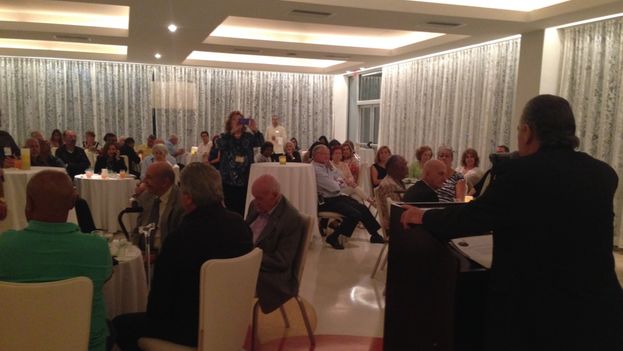
![]() 14ymedio, Reinaldo Escobar, San Juan, Puerto Rico, 12 August 2016 — The Cuban 2nd National Conference is meeting this Friday in San Juan, Puerto Rico, under the slogan “United we will be free,” with the presence of nearly a hundred activists from the island and from exile.
14ymedio, Reinaldo Escobar, San Juan, Puerto Rico, 12 August 2016 — The Cuban 2nd National Conference is meeting this Friday in San Juan, Puerto Rico, under the slogan “United we will be free,” with the presence of nearly a hundred activists from the island and from exile.
